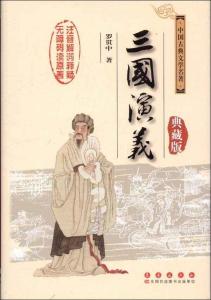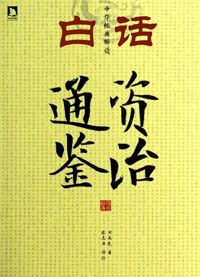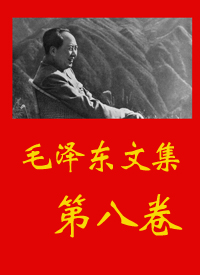Jean Valjean suspected nothing.
Cosette, who was rather less dreamy than Marius, was gay, and that sufficed for Jean Valjean's happiness. The thoughts which Cosette cherished, her tender preoccupations, Marius' image which filled her heart, took away nothing from the incomparable purity of her beautiful, chaste, and smiling brow. She was at the age when the virgin bears her love as the angel his lily. So Jean Valjean was at ease. And then, when two lovers have come to an understanding, things always go well; the third party who might disturb their love is kept in a state of perfect blindness by a restricted number of precautions which are always the same in the case of all lovers. Thus, Cosette never objected to any of Jean Valjean's proposals. Did she want to take a walk? "Yes, dear little father." Did she want to stay at home? Very good. Did he wish to pass the evening with Cosette? She was delighted. As he always went to bed at ten o'clock, Marius did not come to the garden on such occasions until after that hour, when, from the street, he heard Cosette open the long glass door on the veranda. Of course, no one ever met Marius in the daytime. Jean Valjean never even dreamed any longer that Marius was in existence. Only once, one morning, he chanced to say to Cosette: "Why, you have whitewash on your back!" On the previous evening, Marius, in a transport, had pushed Cosette against the wall.
Old Toussaint, who retired early, thought of nothing but her sleep, and was as ignorant of the whole matter as Jean Valjean.
Marius never set foot in the house. When he was with Cosette,
they hid themselves in a recess near the steps, in order that they might neither be seen nor heard from the street, and there they sat, frequently contenting themselves, by way of conversation, with pressing each other's hands twenty times a minute as they gazed at the branches of the trees. At such times, a thunderbolt might have fallen thirty paces from them, and they would not have noticed it, so deeply was the revery of the one absorbed and sunk in the revery of the other.
Limpid purity. Hours wholly white; almost all alike.This sort of love is a recollection of lily petals and the plumage of the dove.
The whole extent of the garden lay between them and the street. Every time that Marius entered and left, he carefully adjusted the bar of the gate in such a manner that no displacement was visible.
He usually went away about midnight, and returned to Courfeyrac's lodgings. Courfeyrac said to Bahorel:--
"Would you believe it? Marius comes home nowadays at one o'clock in the morning."
Bahorel replied:--
"What do you expect? There's always a petard in a seminary fellow."
At times, Courfeyrac folded his arms, assumed a serious air, and said to Marius:--
"You are getting irregular in your habits, young man."
Courfeyrac, being a practical man, did not take in good part this reflection of an invisible paradise upon Marius; he was not much in the habit of concealed passions; it made him impatient, and now and then he called upon Marius to come back to reality.
One morning, he threw him this admonition:--
"My dear fellow, you produce upon me the effect of being located in the moon, the realm of dreams, the province of illusions, capital, soap-bubble. Come, be a good boy, what's her name?"
But nothing could induce Marius "to talk." They might have torn out his nails before one of the two sacred syllables of which that ineffable name, Cosette, was composed. True love is as luminous as the dawn and as silent as the tomb. Only, Courfeyrac saw this change in Marius, that his taciturnity was of the beaming order.
During this sweet month of May, Marius and Cosette learned to know these immense delights. To dispute and to say you for thou, simply that they might say thou the better afterwards. To talk at great length with very minute details, of persons in whom they took not the slightest interest in the world; another proof that in that ravishing opera called love, the libretto counts for almost nothing;
For Marius,to listen to Cosette discussing finery;
For Cosette,to listen to Marius talk in politics;
To listen, knee pressed to knee, to the carriages rolling along the Rue de Babylone;
To gaze upon the same planet in space, or at the same glowworm gleaming in the grass;
To hold their peace together; a still greater delight than conversation;
Etc., etc.
In the meantime, divers complications were approaching.
One evening, Marius was on his way to the rendezvous, by way of the Boulevard des Invalides. He habitually walked with drooping head. As he was on the point of turning the corner of the Rue Plumet, he heard some one quite close to him say:--"Good evening, Monsieur Marius."
He raised his head and recognized Eponine.
This produced a singular effect upon him. He had not thought of that girl a single time since the day when she had conducted him to the Rue Plumet, he had not seen her again, and she had gone completely out of his mind. He had no reasons for anything but gratitude towards her, he owed her his happiness, and yet, it was embarrassing to him to meet her.
It is an error to think that passion, when it is pure and happy, leads man to a state of perfection; it simply leads him, as we have noted, to a state of oblivion. In this situation, man forgets to be bad, but he also forgets to be good. Gratitude, duty, matters essential and important to be remembered, vanish. At any other time, Marius would have behaved quite differently to Eponine. Absorbed in Cosette, he had not even clearly put it to himself that this Eponine was named Eponine Thenardier, and that she bore the name inscribed in his father's will, that name, for which, but a few months before, he would have so ardently sacrificed himself. We show Marius as he was. His father himself was fading out of his soul to some extent, under the splendor of his love.
He replied with some embarrassment:--
"Ah! so it's you, Eponine?"
"Why do you call me you? Have I done anything to you?"
"No," he answered.
Certainly, he had nothing against her. Far from it. Only, he felt that he could not do otherwise, now that he used thou to Cosette, than say you to Eponine.
As he remained silent, she exclaimed:--
"Say--"
Then she paused. It seemed as though words failed that creature formerly so heedless and so bold. She tried to smile and could not. Then she resumed:--
"Well?"
Then she paused again, and remained with downcast eyes.
"Good evening, Mr. Marius," said she suddenly and abruptly; and away she went.
冉阿让什么也没有感觉到。
珂赛特不象马吕斯那样神魂颠倒,她比较心情轻快,这样已够使冉阿让快乐了。珂赛特虽有她的心事,她那甜滋滋的忧虑,脑子里充满了马吕斯的形象,但她那无比纯洁美好的面貌,和原先一样,仍是天真烂熳,笑盈盈的。她正处在意贞圣女怀抱爱神、天使怀抱百合花的年龄。因此,冉阿让是心境舒坦的。并且,当两个情人一经商妥以后,事情总能进行得很顺利,企图干扰他们美梦的第三者往往被一些惯用的手法棗每个有情人都照例采用的那些办法棗蒙蔽过去。因而珂赛特对冉阿让百依百顺。他要出去散步吗?好,我的小爸爸。他要留在家里吗?好极了。他要和珂赛特一同度过这一晚吗?她再高兴没有。由于他总在夜间十点钟上床睡觉,这一天,马吕斯便要到十点过后,从街上听到珂赛特把台阶上的长窗门开了以后,他才跨进园子。不用说,马吕斯白天是从不露面的。冉阿让甚至早已不想到还有马吕斯这么一个人了。只是有一次,一天早晨,他忽然对珂赛特说:“怎么搞的,你背上一背的石灰!”马吕斯在前一天晚上,一时激动,竟把珂赛特挤压在墙上。
那个老杜桑,睡得早,家务一干完,便只想睡觉,和冉阿让一样,是被蒙在鼓里的。
马吕斯从来不进那屋子。当他和珂赛特一道时,他俩便藏在台阶附近的一个凹角里,免得被街上的人看见或听见,坐在那里,说是谈心吗?往往只不过是彼此紧捏着手,每分钟捏上二十次,呆呆地望着树枝。在这种时刻,这一个的梦幻是那么深渺,那么深入到另一个的梦幻,即使天雷落在他们身边三十步以内,也不会惊动他们的。
通明透澈的纯洁。共度的时辰,几乎都一样纯净。这种爱情是一种百合花瓣和白鸽羽毛的收藏。
整个园子是在他们和街道之间。马吕斯每次进出,总要把铁栏门上被移动了的铁条重新摆好,不让露出丝毫痕迹。
他经常要到夜半十二点才离开,回到古费拉克家里。古费拉克对巴阿雷说:
“你信不信?马吕斯现在要到凌晨一时才回家!”
巴阿雷回答说:
“你有什么办法?年轻人总是要闹笑话的。”
有时,古费拉克交叉着手臂,摆出一副严肃面孔,对马吕斯说:
“小伙子,你也未免太辛苦一点了吧!”
古费拉克是个讲实际的人,他不欣赏那种由无形的天堂映在马吕斯身上的光辉,他不习惯那些未公开表现的热情,他不耐烦了,不时对马吕斯发出警告,想把他拉回到现实中来。
一天早晨,他这样数落了他一次:
“我的亲爱的,看你这副模样,我觉得你现在是在月球、梦国、幻省、肥皂泡京城里。谈谈吧,做个好孩子,她叫什么名字?”
但是马吕斯怎么也不走漏一点消息。他宁肯让人家拔掉他的指甲,也不会说出构成珂赛特这个不当泄露的神圣名字的那三个音节中的一个。爱情是和黎明一样光耀,和坟墓一样沉寂的。不过古费拉克从马吕斯身上看出这样一种改变:他虽不说话,却是喜气洋洋的。
在这明媚的五月中,马吕斯和珂赛特尝到了这样一些天大的幸福:
争吵并以“您”相称,仅仅是为了过一会儿能更好地说“你”;
没完没了、尽量仔细地谈论一些和他们毫不相干的人,又一次证明:在爱情这种动人的歌剧里,脚本几乎是无用的;
对马吕斯来说,听珂赛特谈衣服;
对珂赛特来说,听马吕斯谈政治;
膝头碰着膝头,听巴比伦街上的马车驶过;
凝望天空的同一颗行星或草丛中的同一只萤火虫;
静静地坐在一起默不作声,比聊天有更大的乐趣;
等等,等等。
可是各种各样麻烦事儿正在逼来。
一天晚上,马吕斯走过残废军人院街去赴约会,他一贯是低着头走路的,他正要拐进卜吕梅街,听到有人在他身边喊他:
“晚上好,马吕斯先生。”
他抬起头,认出了是爱潘妮。
这给了他一种奇特的感受。自从那天,这姑娘把他引到卜吕梅街以后,他一次也没有想到过她,也从来没有再见过她,他已经完全把她忘了。他对她原只怀着感激的心情,他今天的幸福是从她那里得来的,可是遇见她总不免有些尴尬。
如果认为幸福和纯洁的感情可以使人进入完善的境界,那是错误的。我们已经见到,专一的感情只能使人健忘。在这种情况下,人会忘记做坏事,但也会忘记做好事。感激的心情、责任感、不应疏忽的和讨人厌的回忆都会消逝。在另外一种时刻,马吕斯对爱潘妮的态度也许会完全两样。自从他被珂赛特吸引以后,他甚至没有明确地意识到这个爱潘妮的全名是爱潘妮·德纳第,而德纳第这个姓是写在他父亲的遗嘱里的,几个月以前,他对这个姓还是那么强烈爱戴的。我们如实地写出马吕斯的心情。连他父亲的形象,在他灵魂中也多少消失在他爱情的光辉中了。
他带点为难的样子回答说:
“啊!是您吗,爱潘妮?”
“您为什么要对我说‘您’?难道我在什么地方得罪了您吗?”
“哪里的话。”他回答说。
当然,他对她丝毫没有什么不满。远不是那样。不过,他现在已对珂赛特说“你”了,便只能对爱潘妮说“您”,再没有别的办法。
她看见他不再说话,便嚷道:
“喂,您……”
她又停住了。这姑娘在从前原是那样随便,那样大胆的,这时却好象找不出话来说了。她想装出笑脸,但是不成。她接着说:
“那么……”
她又不说下去了,低着眼睛站在那里。
“晚安,马吕斯先生。”她忽然急促地说,随即转身走了。






